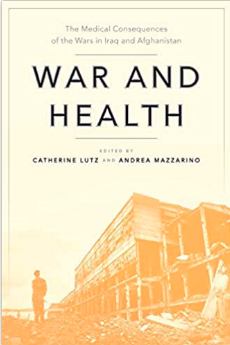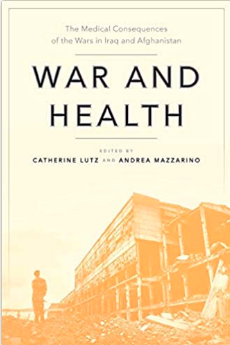https://www.youtube.com/watch?v=UkMDsZ39Rrs
Zoeken in deze blog 🔎🔎
zaterdag 1 april 2023
Gezond Verstand Nieuwsbrief
| |||||||||||||||||||||||||||||||||||||||||
|
The American hypersonic "Dagger" died without being born
Yuri Podolyaka:
The American hypersonic "Dagger" died without being born
The United States took the appearance of Russian hypersonic missiles "Dagger" and "Zircon" very painfully and in recent years has been desperately trying to catch up with us in this critically important segment of weapons.
One of the "answers" to Russia was to be the new AGM-183A air-launched missile (ARRW). It was supposed to be deployed in the first half of the 2020s.
But, this "product", having failed its next test on March 13, 2023, completely lost the "trust" of the US Air Force command and yesterday it was announced that work on this program was being curtailed.
In general, the American "Dagger" died without being born, and ours has successfully hit the enemy for the umpteenth time, incl. and officers of the NATO countries who had the imprudence to end up in Ukraine in specially protected bunkers of the Armed Forces of Ukraine.
P.S. How did they write in the USA about "Daggers" several years ago - "beautiful pictures for Putin"? Well, now let them admire their pictures, which will forever remain just pictures...
Join Slavyangrad chat. Your opinion matters.
https://t.me/+PUg0rQrZdiw4YWFh
#source:
https://t.me/yurasumy/8073
@Slavyangrad
Join SLG 🔺 Intelligence Briefings, Strategy and Analysis, Expert Community
U.S. Senate in bipartisan Vote repeals decades-old Iraq War Authorizations

U.S. Senate in bipartisan Vote repeals decades-old Iraq War Authorizations, But Marco Rubio voted ‘No’
U.S. Sens. Marco Rubio and Rick Scott of Florida voted no on the bill.
By: Jennifer Shutt –
The 66-30 vote sends the measure to the U.S. House, where Speaker Kevin McCarthy remains lukewarm on the repeal effort, though he’s indicated a similar bill could move through the Foreign Affairs Committee and to the floor. Eighteen Republicans joined Democrats and independents in the Senate vote.
U.S. Sens. Marco Rubio and Rick Scott of Florida voted no on the bill, according to a roll call vote.
President Joe Biden backs efforts to repeal the 1991 authorization for the use of military force in the Gulf War and the 2002 authorization against Iraq, and would likely sign the legislation if lawmakers reach a final bipartisan agreement.

The Senate vote to sunset the two Iraq War military authorizations doesn’t repeal a third and separate 2001 AUMF that Congress passed following the 9/11 terrorist attacks. That military authorization, originally used for the war in Afghanistan, has since been used by several presidents to justify counterterrorism military operations around the world.
McCarthy, a California Republican, said last week he supports repealing the Iraq War AUMF and expects a bill to do just that will move through the House Committee on Foreign Affairs before heading to the floor in that chamber.
“I was not here to vote on either of the creation of those, but you’re 20 years into this now. I think it’s very healthy that we take this up and look at this,” McCarthy said from the House Republican retreat in Florida.
McCarthy said he supports keeping the 2001 authorization for the global war on terror in place.
“I support keeping the worldwide AUMF, so there’s action that can be taken if there’s a terrorist anywhere in the world. But Iraq, we’re 20 years into it, I don’t have a problem repealing that,” McCarthy said.
That’s a change from June 2021 when McCarthy voted against a bill that would have repealed the 2002 Iraq war AUMF. The House, then controlled by Democrats, passed the measure following a 268-161 vote, but the Senate never took up the bill.
McConnell opposed
The Republican-controlled House advancing the measure could be politically tricky with Senate Minority Leader Mitch McConnell, a Kentucky Republican, vehemently opposed to Congress repealing the Iraq military authorizations over concerns about Iran and Middle East foreign policy.
“While the Senate’s been engaged in this abstract, theoretical debate about rolling back American power, Iran has continued its deadly attacks on us. Just last week a suspected Iranian attack killed one American and wounded six more in Syria,” McConnell said in a written statement. “Some in America may think our war against terrorism is sunsetting, but clearly the terrorists do not agree.”
Despite McConnell’s objections, Senate debate on the measure this week was broadly bipartisan.
Republican Sen. Todd Young of Indiana, an original co-sponsor, said during floor debate Wednesday that Iraq is no longer the enemy it was 20 years ago, but “a strategic partner, an ally in advancing stability across the Middle East.”
“A lot has changed in the last 20 years and yet according to our laws today we are still at war with Iraq,” Young said. “This isn’t just the result of an oversight, it’s an intentional abdication of this body of its constitutional role in America’s national security.”
Allowing the military authorizations to stay in place, Young contended, would be a “strategic mistake,” in part because Iran is trying to establish a path to the Mediterranean Sea that would run through Syria, Lebanon and Iraq.
“Iraq cannot follow this path,” Young said. “It cannot become a satellite of Iran. And Iran cannot be permitted unrestricted access across the region.”
Virginia Democratic Sen. Tim Kaine, who sponsored the bill, noted during debate that 4,500 Americans died during the Iraq war and more than 31,000 troops were wounded. He also noted that hundreds of thousands of Iraqi civilians were killed.
Kaine said that motivations for the war — specifically that Iraq possessed weapons of mass destruction — proved not to be true.
Kaine argued that Congress rushed into authorizing military action in Iraq, noting the 2002 AUMF moved through the House in a week and was pending before the Senate for three days before it was approved.
“The Senate voted to go to war, a war that has had massive consequences, with a total of three days of analysis,” Kaine said, later noting he believes that many of the challenges the United States faced during the war began with that rush.
“I am very dedicated to the proposition — and I have been since I came here — that the United States and the Article 1 branch of Congress, we should never be pushed into a war and we should never be rushed into a war,” Kaine said.
GOP senators in support
Republican Sens. Mike Braun of Indiana, Ted Budd of North Carolina, Bill Cassidy of Louisiana, Susan Collins of Maine, Kevin Cramer of North Dakota, Steve Daines of Montana, Chuck Grassley of Iowa, Josh Hawley of Missouri, John Hoeven of North Dakota, Mike Lee of Utah, Cynthia Lummis of Wyoming, Roger Marshall and Jerry Moran of Kansas, Lisa Murkowski of Alaska, Rand Paul of Kentucky, Eric Schmitt of Missouri, J.D. Vance of Ohio and Young of Indiana voted to pass the measure along with Democrats.
Senators rejected 11 amendments over the last week, including amendments from Rubio and Scott:
Florida Republican Sen. Marco Rubio’s amendment was rejected following a 32-63 vote. It would have delayed repeal until 30 days after Biden certifies that “Iran has stopped providing financial, technical, and material support to terrorist organizations and other violent groups in Iraq and Syria.”
Senators voted 33-62 to reject an amendment from Florida GOP Sen. Rick Scott that would have created a 12-member Joint Select Committee on Afghanistan, with each of the congressional leaders nominating three lawmakers to the panel. The committee would have been tasked with issuing a report on the 2021 withdrawal of U.S. troops from Afghanistan following two decades of war.
The Senate passed a key procedural hurdle earlier this month when lawmakers voted 68-27 to advance the bill toward final passage, though behind-the-scenes debate about amendment debate slowed passage until Wednesday.
Via Florida Phoenix
Jennifer Shutt
Jennifer covers the nation’s capital as a senior reporter for States Newsroom. Her coverage areas include congressional policy, politics and legal challenges with a focus on health care, unemployment, housing and aid to families.
https://www.juancole.com/2023/03/bipartisan-repeals-authorizations.html
America’s Callous disregard for its Veterans

America’s Callous disregard for its Veterans after the Wars are Over
( Tomdispatch.com) – Here’s something we seldom focus on when it comes to war, American-style, even during the just-passed 20th anniversary of our disastrous invasion of Iraq: many more soldiers survive armed conflict than die from it. This has been especially so during this country’s twenty-first-century War on Terror, which is still playing out in all too many lands globally.
And here’s something to add to that reality: even though many more soldiers survive, they do so with ever more injuries of various sorts — conditions that the Veterans Affairs (VA) and military doctors euphemistically call polytrauma. For some of this, you can thank ever-more-sophisticated improvised explosive devices (IEDs) and other gems of modern warfare like “smart” suicide bombs that can burn, blind, deafen, or mutilate soldier’s bodies, while traumatizing their brains in myriad ways, some of which will not be evident until months or years later.
The U.S. Department of Defense’s wartime casualty count provides just a glimpse of this disparity between injuries and deaths — about eight wounded for every one killed, according to its figures — because it totes up only those troops and contractors whose deaths and wounds can be traced back to their time in war zones like Afghanistan, Iraq, Somalia, and elsewhere. The Pentagon doesn’t include in its tallies those whose injuries either happened or only became apparent off the battlefields of America’s wars, who, for instance, suffer from breathing problems thanks to the toxic burn pits the Pentagon established to dispose of garbage in Iraq or from depression, post-traumatic stress disorder, and chronic pain. After all, the suicide rate of veterans is 1.5 times higher than that of the general population.
Such casualty criteria suggest that the U.S. government has many more veterans of its post-9/11 wars to care for than it has ever acknowledged. Those would also include people who have never seen combat but lived through the relentless pace and pressure of deployments or even simply the brutal hazing in many commands in today’s overstretched military.
In short, America’s veterans need all the help they can get and, as yet, there’s no evidence it’s coming their way.
All told today, more than 40% of post-9/11 veterans have some sort of officially recognized disability — compared with less than 25% of those from prior wars. That number is expected to rise to 54% over the course of the next 30 years. Those veterans are also using VA medical services at unprecedented rates, yet they often need to wait weeks to access much-needed care.
The Personal Battles We Don’t See
As a military spouse of 10 years, a clinical social worker serving veterans and active-duty military families, and a co-founder of Brown University’s Costs of War Project, I’ve spoken to hundreds of veterans and active-duty service members over the years. They regularly describe gaps in the kind of medical care and social support they so desperately need. Often, private charities fill in where state assistance is lacking.
Among the examples I’ve encountered would be the Air Force Reserve officer who relied on donations and food banks to feed his family; the former Marine infantryman who found a physical therapist for his never-ending back pain and mobility issues thanks only to a chance encounter at a farmer’s market; and the Navy ensign, less than honorably discharged with “bad papers,” who got treatment only through a local Alcoholics Anonymous group. And just beyond the frame of such (relatively) happy endings lie significant holes in government support for the health of our veterans.
Also common in military communities are the family members and loved ones who leave their jobs to travel with wounded or ill service members to find help or devote enormous amounts of time to assisting with their daily care. Consider, for instance, the single mother who left her two younger children on their own in California so that she could be with her war-injured son while he recovered at Walter Reed National Military Medical Center in Maryland. Think of the kids who watch television and play video games all afternoon, because their mother needs to drive their war-traumatized father to appointments. Caregivers like them sacrifice more than they should for their loved ones and their country. In return, they are offered next to no recognition, nor even protection from the violence that is not uncommon in such military families.
In most prior major wars, the draft helped ensure the presence of more support personnel for active-duty troops and veterans, while more Americans then knew someone who had served. Twenty-first-century America has settled for a society characterized by less knowledge of — and support for — its veteran community. Civilians (mostly women, of course) often pick up the slack, even as they are expected (along with their husbands) to smoothly reintegrate into civilian life after serving in the armed forces.
The VA Caregiver Program
The government is not entirely indifferent to the plight of family members who give up their livelihoods to care for our wounded. In 2010, President Barack Obama signed into law a bill that set in motion the VA Caregiver Program, a series of supports for families already dealing with the most injured or ill post-9/11 veterans. The program includes a stipend, travel reimbursement, special healthcare services, and training for these caregivers. Over time, it was expanded for veterans of other eras and their loved ones, while the criteria for being a paid caregiver came to include anyone living with a veteran full-time. The establishment of that Caregiver Program crucially recognized the family as an integral part of the echelons of private contractors brought in to support the War on Terror, even if wives, mothers, and relatives were not nearly as handsomely paid as their defense contractor peers.
Unfortunately, good things only last so long! In late 2021, the VA announced that it would conduct an audit of the nearly 20,000 families of post-9/11 veterans receiving stipends and services under the program, based on a new more stringent set of requirements. Those rules stipulated that veterans whose loved ones were enrolled be totally unable to perform at least one of the “tasks of daily living” like getting dressed, bathing, eating, or simply moving around.
While the VA initially projected that about a third of the “legacy” families previously covered by the program would lose their benefits in the new care environment, it soon became clear that many more — nearly 90% of those reviewed — might be found ineligible. After a series of court challenges and interventions by veterans’ groups, the Caregiver Program suspended its audit in early 2022 and agreed to reexamine its rulemaking.
This February, however, the Supreme Court rejected an appeal brought by advocates for veterans challenging the absence of caregiver input in the review process and a lack of attention to the particularities of what each veteran actually needs. In the meantime, as with so many other aspects of military life, all too many veterans and their families who have relied on this support see their futureshanging by a thread.
The War on Terror’s Lasting Human Costs
We Americans tend to look the other way when the government places a relatively small number of us in harm’s way — though we were talking about 170,000 American troops in Iraq alone in 2007! Today, most of us undoubtedly think the War on Terror is over. When President George W. Bush’s administration first received congressional authorization to attack Afghanistan and then Iraq, essentially obtaining blank checks for years to come, generations of Americans, many from lower-income and minority communities, were consigned to endless fighting and — no kidding! — hundreds of thousands of them to futures of injury and social isolation.
Lack of support for such future veterans was seeded into the process from the outset, since the Bush administration never set aside money to cover the long-term expenses of caring for them, nor did Congress ever fully account for such future costs that could, in the end, reach – a Costs of War Project estimate — $2.2 trillion. It’s not clear where that money will come from, let alone how we’ll recruit and train enough healthcare providers and support staff for a pandemic-ravaged medical system.
As a military spouse and mental healthcare provider myself, I face the apathy of our government on a regular basis. My spouse is about to end 20 years in the military and, with some trepidation, I anticipate the long wait times and bureaucratic red tape that I know all too well have been faced by so many others in his position.
My experiences as a therapist do little to counter such realities. More than three months ago, I called the provider services department of the VA’s Community Care Network. It contracts with non-military healthcare givers so that veterans can seek services outside of VA facilities if they choose to do so. After the representative I spoke with confirmed that there was a need for more mental health providers in my region, she took down my name and contact information, telling me that someone would call back to do an “intake” interview with me within 10 days.
More than 100 days and three follow-up phone calls later, I’m still waiting. So is a colleague I know with decades of experience navigating America’s labyrinthine mental-health insurance system. Most major insurance companies do have standardized online forms that can digitally accept “intakes” from credential providers. (Indeed, all that is necessary is less than a page-worth of demographic and tax-related information.) No such entry point exists in my regional VA system — and mind you, I live just a stone’s throw from the Pentagon.
For every VA staff member keeping a seat warm who stands between veterans and those qualified to provide for their care, there is at least one untrained, stressed-out family member forced to work at little or no cost. Believe me, it’s difficult to witness the stress of a loved one facing a momentous transition, while knowing that the policymakers once so prepared to place them in harm’s way are now remarkably unprepared to care for them when they are no longer of direct use.
United We Fall?
You’d like to think — wouldn’t you? — that people are what Americans most want to invest in to secure a livable future for our country, let alone humanity as a whole. Again and again, facing needs ranging from healthcare to hunger to unfettered environmental degradation wrought by our own military and government, our congressional representatives seem ready to commit to little more than ever greater weapons production on a multi-year basis.
Lack of support for veterans is but part of this larger social vacuum. In my family, at least, a fear of far worse lurks all too close at hand (including that our country might end up in a future apocalyptic nuclear tit-for-tat with Vladimir Putin’s maniacal Russian government). Even without such futuristic horror, the living conditions of the vulnerable among us who have survived our own nightmarish wars should serve as a warning that, if we continue to be so unprepared to care for those who tried to serve us, not much worth fighting for will remain.
My spouse and I like to torture ourselves weekly by watching the apocalyptic sci-fi television series The Last of Us in which pandemic-stricken zombies and violence by our own troops reduce this country to a series of military-led quarantine zones reserved for a privileged few. In one scene, a general in charge of one of those zones warns an unruly teenage recruit that her best bet for a decent existence is to become an officer in his government. Spoiler alert: she ends up getting kidnapped by resistance fighters who try to use her to find a cure for the pandemic virus circulating in that world. In the end, she buys into the dream of a decent future made possible by science and acts on it herself. You’ll have to watch to find out more, but her caring decision to pursue what’s best for us all left my spouse and me feeling remarkably upbeat in such a downbeat world.
I suspect that if we do want a better world, the rest of us will have to act like that young heroine who risks life and limb for the good of us all. My version of that dream would start with urging our government to do everything possible to ensure that we invest more in human beings instead of the next round of weaponry, including the world-ending variety of them.
A recent New York Times op-ed marveled that Americans today don’t seem to fear nuclear weapons as they once did, even though we fear so many other things from viruses to disinformation to climate change. Paradoxically, I suspect that such an oversight is caused, at least in part, by this country’s seemingly never-ending commitment to funding an ever-vaster military and its weaponry instead of education, healthcare, infrastructure, and jobs, not to speak of the veterans we dispatched into that nightmarish war on terror without making a commitment to truly support them.
Isn’t it time that we begin pushing our congressional representatives (small hope, sadly enough!) to set in motion policies that would uplift us all, including those veterans, instead of pouring yet more staggering sums into a military that’s only sent so many of us to hell and back in this century?
Copyright 2023 Andrea Mazzarino
Via Tomdispatch.com
https://www.juancole.com/2023/03/americas-disregard-veterans.html
Arrest Them and Throw Them Out, in a little Boat
https://x.com/ianmiles/status/2016143168694362516 Ian Miles Cheong @ianmiles BREAKING: Spain is fast tracking a decree to pass the legaliz...

-
Ziehier Yoeri Albrecht, die door een jonge journalist van het mediakanaal Left Laser betrapt werd tijdens een privé-onderonsje met twee ...
-
Juno Sara Alexandra, mijn kleindochter. Mag ik u voorstellen aan: Immanuel Maurice Wallerstein ( New York , 28 september 1930 ) een ...
-
En weer een generatie joodse slachtofferisten, nu nog Israelische kinderen, die verwensingen schrijft op Israelische bommen die Libanese l...












